Standing Up and Standing Out - The Fear of Ostracism is Worse than Death
The fear of being disliked, not accepted, rejected, shunned, ostracized or expelled from your social connectivity or relationships with others, is a strong motivator to not do certain things.
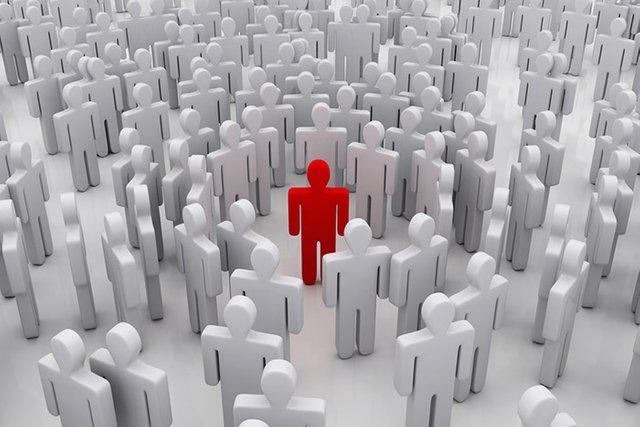
source
We don't steal other's lives, sexual selection, personal safety, or property in order to maximize of cooperative survival advantage.
We do this mostly because they help us survive, and because they can also harm us back. What others will do to us matter's in our appraisal of the consequences to our actions. Others that don't help us survive, or can't respond by harming us, we generally don't care how we treat them (like most nonhuman animals).
Ostracism, to keep people from doing harm to others, can work. It's an effective way to get people to stop doing something or to start doing something. But ostracism can also be used as a tool for upholding falsity and incorrectness.
Ostracism can be used to keep people in line with falsity, by pressuring others to not speak up about important issues of concern. Silence of the information to remain unconsciously unaware of issues, is how some people in a community prefer to do things so that their personal attachment or investment in a way of doing things will continue.
What currently is happening, is the current condition, and most people tacitly accept this as the de facto standardized norms of acceptability, the "solid" "ground" of "truth", "reality", "existence". But they don't understand that they are conditioned to accept the current condition as it is. The attachment to the current condition ensures it persists and doesn't change.
Those who speak up against the current condition that has falsity and issues with it, are going against the flow.
This is to go against the mainstream current and flow, to create turbulence, interference with the flow and current of the present condition. This rocks the boat. This can get us wrecked socially, and in turn hurt your survival optimization, and that leads us closer to the possibility of death.
Ostracism is feared more than death at a subconscious level, because if ostracism happens, death follows shortly after in our evolutionary history. This programmed survival intuition is ingrained within us.
Evolutionary Fear of Exclusion

source
Keep your head down, don't get involved in issues, otherwise people might not like you, then they won't support you, then you're social standing goes down, then you're a pariah, etc.
Many people have a fear of public speaking. Some people fear standing in front of a group and speaking more than death. This might just be an evolutionary memory, or something like that, from being social animals.
If we try to engage in solo survival, that is very hard. We need to come up with ways to get food on our own, and protect ourselves from predators all on our own. Cooperative survival is easier where responsibilities for survival get distributed and improve efficiency.
In a group, members can alert each other about predators and fight them off together, and this is likely why greater social development evolved to where we are today.
Size, speed or fierceness is not what human animals have, but we have our wits to collaborate and optimize survival.
If you work together well, and you survive and pass on your traits to the next generation, then things keep going on and each generation survives, and so does your lineage. Failure to be part of the social group can result in getting kicked out and likely spells doom for an early human trying to survive. Therefore, anything that threatens social status, in a cooperative survival model of living, can result in the threat of shunning, ostracism or expulsion. This is a grave risk indeed.
In the animal kingdom there is ostracism, and this is a social death that does result in a literal death afterwards. Being acclimated to survival in a group and protection against predators, the individual can't get enough food and protect themselves, and usually dies in a short period of time.
This is the psychology behind public speaking fears, and also other fears that we have which are even worse.
If you're not just speaking publicly on some minor or benign topic, but confronting public issues, such as popular issues people are attached to or have personal interest to maintain, then you risk not only the same level social exclusion, but greater.
Those who are attached to their own personal gains don't honestly evaluate the situation from a larger perspective, and will fight to defend the current condition because they gain from it. But when we see a problem, we need to bring this awareness to others so that the issue is addressed with proper understanding and not ignored.
Keeping Others in Line
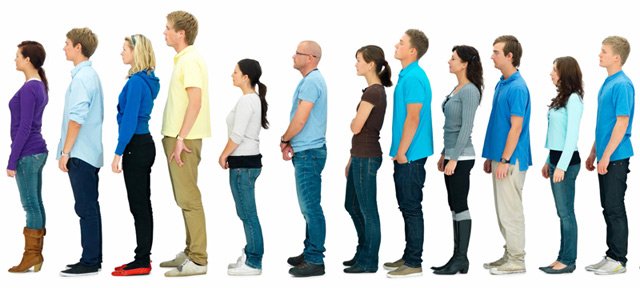
source
In a social setting, and within a community, there is a need to belong, be accepted and included by others.
Ostracism is normally used by a group to weed out unproductive or disruptive members in the animal kingdom. This makes members of groups very aware to detect ostracism from others so they can salvage their standing in the community.
For the animal kingdom, this works on basic productivity valuation of what they do in the community or what they provide. In the human world we have much larger psychological dimension where falsity can be accepted by a culture, community or nation, and perpetuated as the current condition which acts as a force of constriction to keep everybody locked in attachment to that false worldview.
People then act as their own jailers, locking themselves in a prison of their own making. And if someone tries to speak out, to show people in the cave that they're not seeing reality correctly, to point out the errors, to show what's wrong, then sometimes the one trying to show people the light will get persecuted, ostracized and told to be quiet and just let everyone continue as they were, happy and content in their blissfully ignorant ways.
Mending social rejection can be done with servility, withdrawal, or becoming angry and aggressive, such as those who are rejected and bullied and eventually turn to school shootings as a revenge.
The Need to Belong
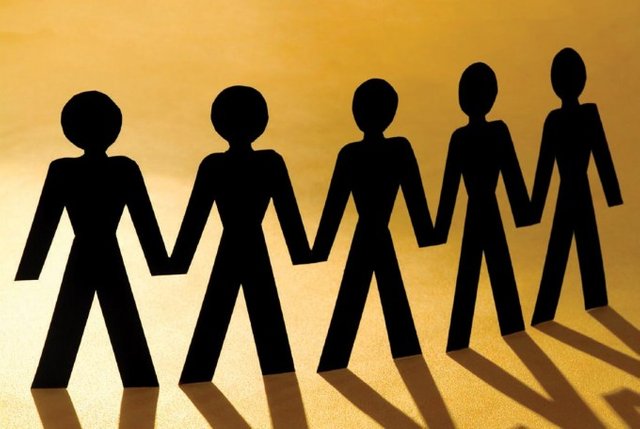
source
Humans have a deep need to belong and are motivated by it to act in accordance to conform with what promotes being accepted, being liked, etc.
Forgetting or overriding this need can come with a psychological price. Rejection will hamper the motivational need to belong and can throw some people off, whereby they lose focus on a purpose and meaning. Being left out can throw you off balance in your consciousness, from being able to empathize, to having intelligent thought.
And it doesn't take much, as many of us are aware, for some people to feel that way. Overall, we have a high emotional aspect to our lives which makes us incredibly sensitive to rejection where we are capable of quickly sensing subtle or ambiguous remarks from others.
This is good to understand, but this is not to say you should avoid this in all instances and simply hyper-tolerate all behavior form people, like trolls or abusive people. As if to simply let them continue to do what they do, or not remove yourself from their presence by ignoring them, denying them in your life, ostracizing yourself, etc. Getting away from bad people and not feeding them your time or attention is a valid choice (wu wei). There is a righteous shunning, ostracization and shunning.
Shunning Exercise
You can test this out yourself, with a ball tossing experiment, tossing it from person to person around the circle where someone is left out of the game. People who get excluded will feel left out, and bad in some way, with their need to satisfy the psychological belonging being denied. Our need to belong can easily be challenged and trigger negative emotional responses.
Numbing Ourselves to Pain

source
Receiving ostracism creates brain activity in the same area that is active when we feel physical pain. The brain's dorsal anterior cingulate cortex lights up when we are excluded, either intentionally or not. Emotional pain is felt.
Our responses for social pain are using the same nerve pathways originally laid out for physical pain.
Although they are two different phenomena, physical vs. social/emotional, they share many of the same pathways. Social rejection and pain alert us of a potential threat, and life threatening when it comes to ostracism, at least in a former evolutionary sense. In the modern age you can still survive despite not integrated into social groups, but there are still some cultures where you have to conform to whatever bullshit they are attached to.
Ostracism is feared more than death.
Speaking up against the group, bringing up issues people would rather not talk about or understand, can get someone excluded fairly quickly. Social conditioning to accept certain behavior, doesn't have to be based on accepting what is right, good or true, but instead used to exclude those who won't conform to falsity and who stand up for truth. Many societies or cultures exist where we would need to confirm to new ways of living or doing things, or we would face social consequences.
There is another similarity with emotional and physical pain, and that's the eventual emotional numbness from social rejection that's analogous to the analgesic effect that happens after an injury. After receiving the similar pathway for social rejection, the brain may be coping with it by numbing the emotional response that would normally occur.
Being ostracized or rejected in general has consequences for us. Depression, eating and promiscuity disorders, and even suicide attempts can result. Some people say they prefer physical abuse that heals over the rejection. Long term rejection can lead to resentment, anger and aggression.
Aggression and Approval

source
One study shows a very strong correlation between aggression and rejection.
A fake personality test telling people they will end up alone in life has them act more aggressively in a different test afterwards. If they won a game, they were allowed to blast white noise at the loser. People who won but weren't told they would live a life alone on the personality test, did not use the white noise very long, while those who were told they would be alone used it for a longer duration and with a louder intensity.
Self-regulating our behavior seems to go out the window as a concern when we feel rejected. We can tend to lash out and act foolishly, shifting towards anti-social or aggressive behavior.
Aggression is only "one side of the coin" for our reactions that we can engage in, in response to social exclusion. Some people will become even more socially attentive to try to win back approval from others.
Aggression tends to come about when you feel you lost control over the outcome and have no recourse of action. Aggression is used to reassert themselves, rather than be passive or submissive to the others to gain their acceptance. Aggression is a more salient, valued and weighted with more in importance than any desire to be liked by those who rejected them.
Ostracism continues to be an acceptable form of punishment in societies, despite the real-life consequences that can come about. Ostracism is hard to stop once it starts. Re-engaging with someone who was being ignored via ostracism, is a hard thing to do.
Handling Rejection

source
"Time-outs" for children are a form of ostracism punishment when you think about it. The effects of ostracizing children can have unintended consequences in their psychological development. It's also possible that personality differences affect how people react to rejection, such as the difference between aggression or trying to win back approval.
Kip Williams, PhD, and his University of Toledo, did a "Scarlet O" ostracism experiment with themselves. Each day a red "O" was placed on someone's office door indicating that they were to be ostracized for the day. No talking, no contact and no recognition whatsoever.
Both those being ostracized and those doing the ostracizing felt miserable and terrible during the whole experiment. One person who was ostracized turned to aggression and didn't care if they angered others, they just wanted the others to notice them. While other people became servile and tried to suck up and please others to get recognition.
Some individuals may have a higher need to belong, while others might have a higher need to control. Predicting who will respond either way is not possible, but regardless it shows that ostracism is a powerful tool for social pressuring, either towards and for what is right or wrong. It can be applied on a large scale as a society, or on an individual basis.
Risks in Speaking Up
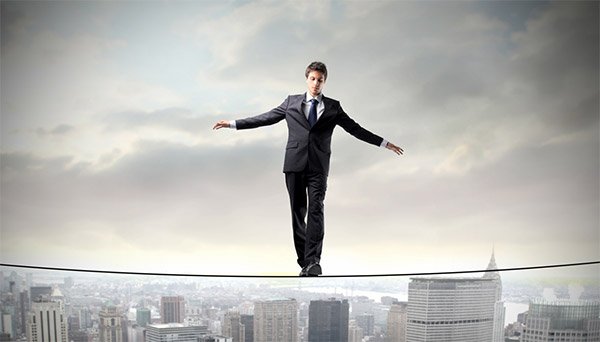
source
What's interesting in all of this research, is that they never talk about authentic, real, genuine, true, right, good actions that go against the herd, and how hard it is to speak up against the group-mind and face the irrational dislike, hatred or shunning from those who don't want to hear what's wrong.
Ostracism can be used for good or bad. It can be used to coerce people to choose between principles of truth, right and good, or their survival within the falsity of that social grouping.
People can come to expect others to not cause trouble, to not be "judgmental" (don't discern right from wrong, nono!), not talk about faulty behavior that creates bad things, not draw attention to issues that matter and need to be dealt with, not educate the community about what is even happening. They just expect you to be quiet, keep your head down, don't rock the boat, go along to get along and everyone can be blissfully happy in ignorance.
People generally don't like friction, tension, interference, contradiction, controversy and conflict that comes with dealing with issues, problems, wrongs and negatives around us or within us.
We can be blinded by our attachments, biases and fallacious thinking into keeping our head in the sand, close our eyes, block our ears, and certainly not speak up about it either.
If you try to speak up about a serious issue, something is wrong, then you're a "troublemaker" to the "community" and your bringing attention to what is going on is "not helping to serve the community". It's a lot more comfortable if they try to silence you from speaking up, then things can go back to the normalcy they are accustomed to and whatever is happening can keep happening.
It's prudent to think about choosing your battles. Ask yourself: "is this really worth it?", "what will I gain from this?", "how will this hurt me in the long run?"
If you're more concerned about the larger picture, and less about your own personal interests, then the risk might be worth it to try to correct something that needs correcting. There is always opposition to good causes when falsity is accepted as "truth", wrong as "right", etc. Slavery didn't end easily, many people were too attached to themselves to honestly evaluate their behavior. This psychological factor of attachment to ourselves applies in all areas of our life.
There is financial and professional risk, social risk and physical and emotional risk in certain cases when we receive threats or abusive language, because we're confronting someone else's personal interests that don't align with what is really right good and true, yet they don't want to see it.
Dissent
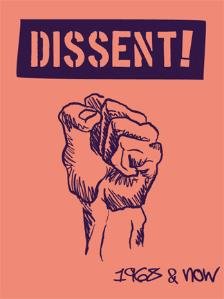
source
Dissent is not popular in any community that accepts something it shouldn't. Those who speak up about it get looked down upon for daring to challenge what everyone else accepts as "good".
It takes a lot of time, energy, effort, dedication, determination and persistence to explain the complexity of these issues.
Especially when people don't go through previous explanations, and keep repeating the same fallacious reasoning and lack of understanding, and then expect the ones who did take the time to explain it to repeat things over and over. Our time and energy gets quickly depleted dealing with the same reactions. The work has been done to put it out for multiple people to access freely. All that is required is for them to input the information and explanation someone else output and honestly evaluate it without personal attachment or fallacious reasoning.
In many industries where there are problems that need to be addressed for resolutions to come about, some are they are direct and specific about what needs to change and how to change it. They understand it. But in response, they suffer from having economic opportunities removed, being dismissed, made fun of or even targeted for daring to do something about the problem.
Many tactics can be used to prevent change through preventing an understanding of the situation. Deceiving others can be done easily when people are motivated by personal interest and the gains they receive from maintaining the current condition, especially when they deceive themselves and aren't even aware of how their lying to themselves and unable to face the mirror honestly about their behavior.
Silencing Dissent
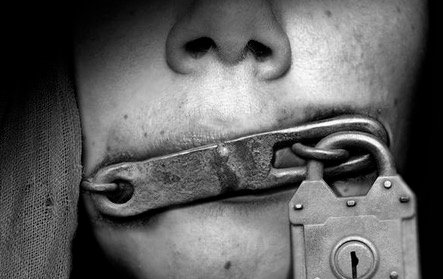
source
People can advocate for improvements in some area, and received pushback from those who don't want to change, and refuse to see a reason to, thinking that the way things are is the way things should be.
Silencing dissent has been done in communities across the Internet and in the real world. It's an effective tool to create fear by controlling other people's behavior. Those who attempt to raise awareness on issues get their message hidden, or deleted, under the veil of "justice" that the content is "not being good for the community" or for the "public good", etc. When all they're trying to do is hide the information from reaching the awareness of more people.
Those who have the power of the dominant class tend to marginalize those who speak out against issues that maintain an interest they have.
Those who have less power and are seeking to ingratiate themselves to the dominant class, will be encouraged to mimic the behavior of that powerful class and engage in similar behaviors. It's like high school, where the popular kids protect and preserve their social order, and those who want to be like them join in to support them. Then the bandwagon effect kicks in where people don't want to be singled out and targeted, so they jump on the popularity of the consensus that forms -- not around what is right good are true, but around personal motivations of certain people who partake in receiving benefits or gains in maintaining the current condition as it is.
One tactic used to silence people implicitly, in a covert subtle way, is to try to convince you that what you're doing is wrong, and is even harming yourself.
Have you ever brought up issues that are important, and you can get intense about it since people are ignoring it, mocking it, or denying that it's an issue, and even blaming you for the problem rather than actually figuring out what it is? They say something like "you're not going to convince people if you're so upset".
Tone Police
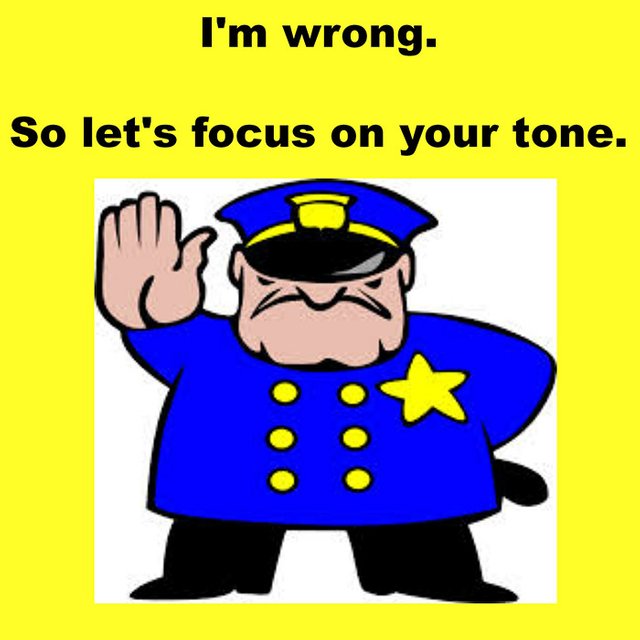
source
There may be valid times to say this, but you get what I mean by this tactic, this is like a tone policing, where people are emotionally mind controlled to either downplay or disregard the actual message because someone is daring to have a change of tone and be emotionally expressive about a topic or situation. Like, as if I have to be neutral in tone for all the things I talk about, and all the time... nope, not how reality is supposed to affect people.
Serious issues, wrongs that are ignored, will tend to get people a bit pissed off that no one else cares about the issue. This is when some people feel they have lost control of what they can do: people are not listening, trying to silence them, rejecting them, and even ostracizing them, so they turn to aggression as a last resort to have someone pay attention to the issue. Even a suicide attempt is a tactic some people engage in to get others to pay attention to an issue they have.
Denial and Deception
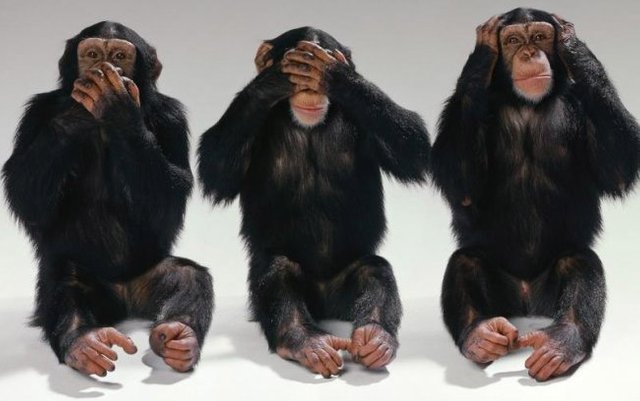
source
Other tactics are to support those who are part of the problem while denying there is a problem, to troll and derail discussion to understand the problem, gaslight and spin bullshit to convince others that the problem isn't the problem and even portray themselves as the victim.
People in positions of power often reframe reality to support their flawed perspective where they have become victims of an angry unreasonable mob, and they did absolutely nothing wrong.
Never underestimate the power of denial.
Once these tactics are used, they create a pressure against those speaking up, with the fear of facing greater consequences. Trying to gain support from others when wrongdoings are occurring can also be problematic, as their personal attachments to others, and their own apathy to be concerned for what is happening, can leave you on your own or even have them join the other side in support of something wrong happening.
Using labels are enough to deter many people from standing up with a cause and doing something.
Being called a troublemaker, difficult, oversensitive, judgmental, whiner ... because being silent about important issues is what they want from you so they can keep doing what they do. Crooks in the banking, political, business and any other sphere of reality, always lie and deny they did anything wrong until it can be proven as such. Some people may not be aware they are doing something fraudulent or wrong, yet still deny it because they can't let go of themselves to face the mirror honestly.
Instilling Fear in Bystanders
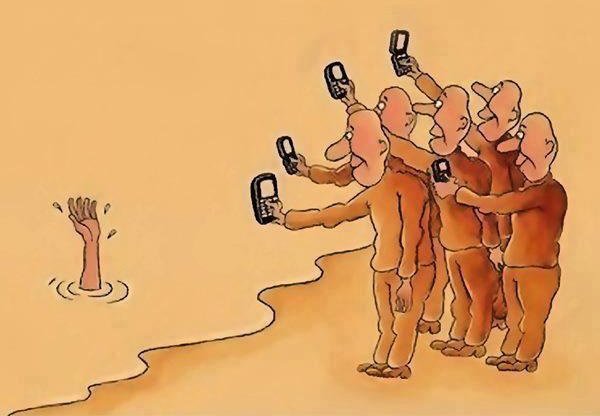
source
Those who stand on the sidelines get to see what happens when you or someone else stands up to what is currently accepted and those who defend its continence. You can learn that standing up and defending something, like principles and speaking out against something, is more dangerous than to be quiet.
Many people are afraid to speak out in public, but they will speak more openly in private where they don't have the threat of an overwhelming backlash against them, either from certain individuals or the community at large.
Don't forget about the bystander effect, where people tend to not help those being wronged when other people are present. It's partially from a diffused sense of responsibility upon others doing something, as well as the cohesiveness and identification within the group to help one another, but there is also the factor of fear in some cases where standing against a powerful opponent results in you getting hurt (physically, monetarily, socially, etc.) along with the original victim.
We are afraid of doing things in so many ways. Fear is constricting our possibilities to evolve and improve.*
Losing Alliances
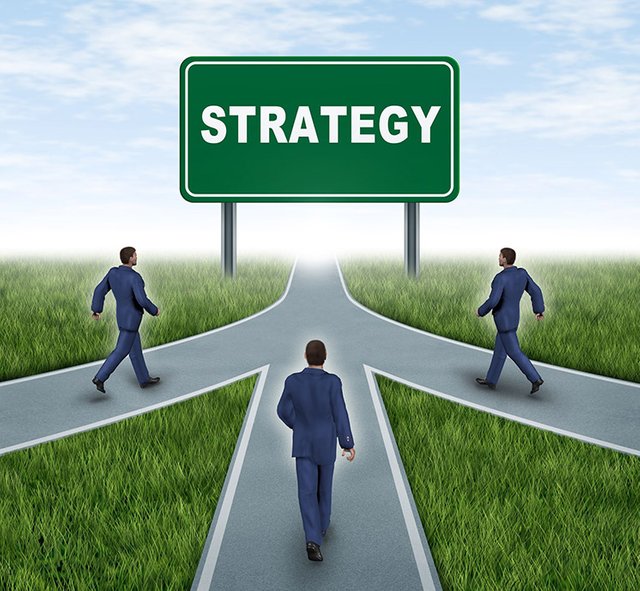
source
When the heat is on, and the friction and conflict ramp up, many former allies choose to silence and distance themselves as a buffer from the nuclear fallout of the war. Even within a dissenting or oppositional group, members can begin to put pressure or condemn individuals who speak up more.
Fear runs a large part of social dynamics. As long as we are operating within fear, we're operating in a restriction and constriction of consciousness towards being unconscious and unaware of certain aspects of reality.
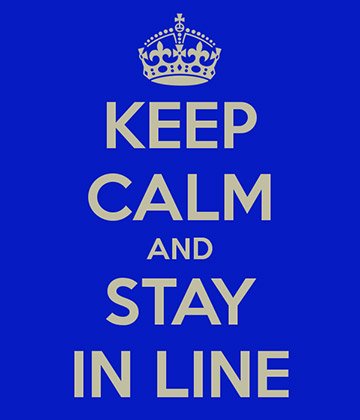
source
Many people you bring up issues to, trying to raise awareness about problems, can simply say you're "complaining". They just dismiss everything as complaining, or troublesome, as if it doesn't have any merit in being discussed because they are afraid of facing the negative issues. They live as falser selves in a positivity mask trying to force rosy colored glasses onto reality that doesn't operate according to their deluded worldview.
Some people will say that while you're busy complaining and not being productive, they'll be over there doing their part to make the community a better place by being a good little producer. Maybe they do produce good things, and maybe not, either way it's an excuse to dismiss what is going on and keep doing what they are doing. They can't be bothered to care more.
So... dealing with problems in reality is never a productive thing... being ignorant, dismissive, deflective and in denial of issues is sure the way to a healthy perception, conception, understanding and navigation of reality, right?
If only few people continue to be the only ones that are calling out the issues and problems around them, then they will continue to be the ones that get ignored, marginalized, or punished, and eventually give up because no one else cares about raising awareness, and the issue will remain undealt with until it becomes more obvious. Allies who understand an issue need to stand together, and lend each other credibility and valid criticism to improve their arguments that raise awareness.
There is serious risk to standing up and speaking about an issue.
Personal Attachment
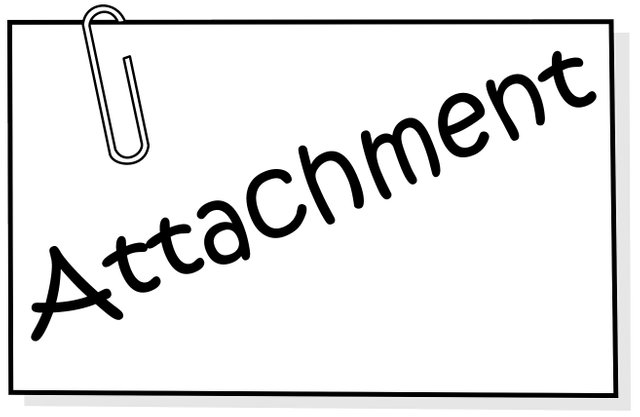
Trying to get people to care about things that are more important than their own immediate, short-term, personal interests, is hard to do.
When you challenge what they are invested in and lose to gain by stopping, they don't want to let it go. They are attached to it and don't want to look at it honestly.
For example, trying to get people to care about other people being slaughtered in another country, as mattering more than their favorite sporting event, This is just one example of how people put their self-centered low consciousness personal interests above higher consciousness concern for the bigger picture.
Social Media - Address Issues without Being Punished?
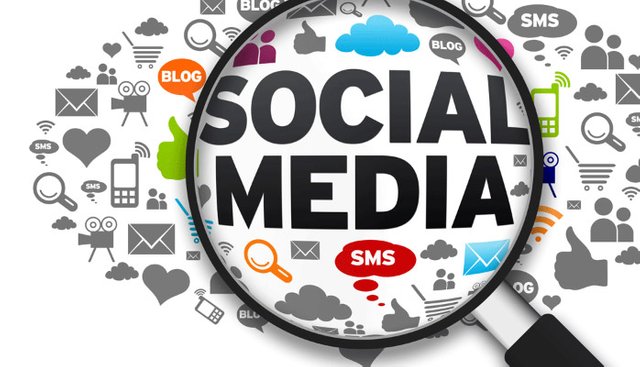
source
Prior to the Internet there were studies in communications about the tendency for people to not speak up about issues in public, or amongst their family, friends or work colleagues when they believe their own position was widely at odds and not shared by others. It has been called the "spiral of silence".
Social media platforms might have produced a different venue for freer expression of ideas. Pew Research Center has statistics on Edward Snowden's 2013 exposure of the surveillance state. Americans were divided between standing for someone advocating for truth (which is a universal higher consciousness identification), and their personal self-centered identification with their nation, political party, or nationalistic or patriotic pride. In one survey 44% said releasing classified information harms the public interest, while 49% said it serves the public interest. It seems truth doesn't matter as much to about half the people, as it does to the other half.
The surveys produced some insights, such as 86% of Americans were willing to have in-person conversations about this, while only 42% of social media users were willing to post about it on platforms.
This shows the fear of publicly speaking for or against something, versus doing it privately with a few people where your social commentary is not broadcast to everyone which would affect you on such a wider scale.
In any case, people are always more willing to share and speak up about various issues if a certain percentage of their audience agrees with them, and will support them, instead of possibly punishing them by no longer following them and paying attention to their posts, material, etc.
In the end social media doesn't provide a new medium for people to speak up on issues.
Maintaining our social connections, whether in real life or on social media platforms, is important to most people and they won't be willing to sacrifice the possibility of losing those relationships if they think their friends or followers disagree with them.
Also, the larger your network, the less likely you are to speak up against the majority opinion of your followers.
Social media does not provide an alternative way to talk about relevant and important issues if someone fears doing so in person.
Spiral of Silence
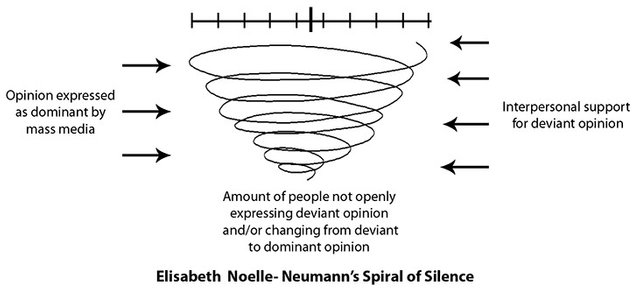
source
The attraction to social cohesion to fulfill our need to below means we're more interested in being popular and liked, than in speaking the truth to falsity, by default that is, in an unconscious, subconscious, involuntary, automatic way according to our biological-nature.
We can engage in higher order thinking to willfully, voluntary, be consciously aware of what is going on int he world an in ourselves, like these subconscious motivational factors that drive us to certain behavior in life. We can choose to stand for what is right, good and true.
Our personal motivation for survival, which comes from low consciousness unconscious processing of information to motivate us to act, overrides higher consciousness willful, voluntary, reflective, contemplative, analytical and critical evaluation of reality and of ourselves, with respect to foundational principles and values in life.
Public opinion is propagated by those who speak it the most, such as the media in our real society and communities, and they set the public opinion. The media and other people don't simply represent what may be the public opinion, but through the power of influence of speech they mold and shape the minds and consciousness of the public. If popularity in numbers is on the side of a message, or the people in position of power support it, then people will be influenced even more by those speaking about it.
Elisabeth Noelle-Neumann says in The Spiral of Silence A Theory of Public Opinion:
"According to the social-psychological mechanism here called “the spiral of silence,” the mass media have to be seen as creating public opinion: they provide the environmental pressure to which people respond with alacrity, or with acquiescence, or with silence."
I have said before in my work, everything people say and do in your environment, from friends, family to media on TV or the internet, all impacts you even when you're not aware of it. All of the social and psychological factors are being processed at an unconscious level to promote your survival, and that is an automatic, unconscious, low consciousness motivator for behavior where you are not aware or conscious of why you want to do something. You can override that subliminal motivation to act (whatever it is, maybe bad habit) with higher consciousness attention towards principles of truth, philosophy, psychology, morality, etc.
Being aware of problems, and detaching from ourselves to be able to honestly evaluate them, is important in life. Otherwise were not facing reality, or the mirror of ourselves, honestly.
We can have friction, tension, interference, contradiction, controversy and conflict as part of the process of change -- as long as it is in alignment with values and principles of truth, morality, right, good, just, etc.
Getting people to stop doing something wrong is a right thing to do.
So then we need to figure out what is right from wrong, true from false, and then be able to act in proper understanding. This is the point of all my work in psychology, consciousness, philosophy, existence, morality, etc. It's all about increasing our capacities to think and learn so that we can understand more of reality and what to do going forward together.
Standing up for what matters needs to be done.
Even if you're alone and the first to speak, at least it sends a message to others who weren't sure that there are others out there to learn more about what is going on together, instead of alone.
There is a risk in taking a leap and standing up, but the rewards of creating a positive change for the better can be worth all the hardship that comes as a result of people fighting to deny that reality. This is the responsibility we all have to truth, to speak it and explain it for others to understand so we can move forward in truth together.
Thank you for your time and attention! I appreciate the knowledge reaching more people. Take care. Peace.
Join me on Discord here if you want to talk about the article!
Do you want to voice your concerns using any name without fear of reprisals from the community or power players to stop supporting you? Go to this forum and speak about issues that concern you. More people can have their voices heard so that awareness can be spread.
http://steemitcommunity.boards.net/
Please resteem and share, and maybe more people will learn about this topic. I doubt all the work will get much more attention than my other work, probably less, especially since it's like 5x longer (over 5500 words). I know high quality content of this kind isn't appreciated much by everyone, but here is a long one anyways. TLDR is a killer! LOL!
References:
http://www.apa.org/monitor/2009/04/social.aspx
https://www.psychologytoday.com/blog/the-real-story-risk/201211/the-thing-we-fear-more-death
https://modelviewculture.com/pieces/dissent-unheard-of
http://www.pewinternet.org/2014/08/26/social-media-and-the-spiral-of-silence/
https://en.wikipedia.org/wiki/Bystander_effect
If you appreciate and value the content, please consider:
@krnel
2017-01-05, 3:40pm

@Krnel
for last couple of days I'v been seeing that you are fighting back bullies , the ones who try to make you back off from what you stand for by scaring ,threatening ,stop supporting , etc.. you. I myself am not a big account or something, and pretty much cant do anything to help you , but I admire your attitude and I hope to see you win this rigged game :)
Thank you very much for the support. There will be more needed in the coming future. This is all foundational philosophical and psychological understanding to deal with issues I will be raising. I need people to understand their power to change things. :) Thanks for the feedback.
you are starting a movement that is addressing issues which are not going to be solved by adding features or changing the code.
and I try to do my part and stay on the path, promise :)
It's a great article
Language is a motherfucker. In the last weeks I have been fortunate to have this realization. Language itself is inadequate at expressing so many things. Written language is not that much worse than words, gestures and the tone/attitude/context. You would think that there's no limit and it's understandable as is freaking language. I don't think this is a phenomenon that affects the language of business (:, I think this is probably just what happens in every other language: you feel a certain way. That's it, it will be inescapable and there's nothing wrong with feelings outside of words, but when you're trying to tie that feeling with concepts so you can communicate something profound, tough shit. Even if you invent a new word, it only means so much, it only speaks so much, it only communicates so much. In the breaks and pauses we have numerous opportunities for squabbles and in the nuances of everyone's tone lies another trap. Our mood, which is kinda our attitude, governs us, and then in turn our attitude/general disposition gives rise to our feelings, our thoughts, and of course those will dictate our behavior, which will either change or reaffirm our mood/attitude, the vicious cycle or the cutting of the cord. The language can be harmless but the way it's interpreted by different people can be sought with conflict and in spite of intent it will smash more than it will build.
It's not how we intend language to work, but language is a motherfucker.
The internet is teeming with cia trolls, shills for the many masters that need to keep the pressure on truth and information by disseminating half thoughts and memes about too big to fail, no responsibility, no accountability, this is reality accept it pesant .
Classism is what shapes public opinion. The excuse for classism is what allows this mentality. America's founding fathers were a bunch of hypocrites that established classism over here while trying to escape it. The educators in our indoctrination socializing-experiments need to be ostracized, as do our doctors who are joined at the hip with their educators, whose information is disseminated by educators pushing the same propaganda that still rules today's medical community.(2). The plutocrats think they cannot fuck up, but at night they still wrestle with the what if, and if so I hope they sleep good, and not worry about those what ifs..
"Language is a motherfucker"
Hahahaha, right on @baah I like a lot your remark above about language and actually all the context of your comment in general. I also find this @krnel post a true piece of art depicting a crystal clear point of view about what is going on very bad on this society and the awful majority of dumbass specimens whom are populating this crappy world at lightning speeds. Too bad ¿doesn't it?
Well, on other hand I have to confess this post and especially your thoughtful comment about language gives me the opportunity to rescue, resurrect and bring afloat an old post I published in my blog 4 months ago when I was starting to spit out my maverick mind here on steemit. This was actually my second post ever on steemit when #humor was not even an existent tag in the platform and I thought I should be doing something about it. Always on the hope to spread around though facts, ugly reality crap, some kind of 'bizarre' but crude true consciousness and shit like that.. of course, and also always with a pinch of unusual, ironic, sarcastic and even cynic humor all around on the surface. So, threats away, here's the thing. I hope everyone enjoy the authentic madness with a few chuckles!! Cheers!! :)
https://steemit.com/philosophy/@por500bolos/the-binary-state-a-short-tale-to-snatch-you-off-some-laughter-and-continual-steemit-reflections
That article is brilliant, at least to me!
When I'm walking around the neighborhood with my wife I constantly remark, Portlandia style "did you smell that/can you smell that" or when we are shopping for stuff I ask her to hold things, feel their weight, asses things on many levels outside visual/audio.
One of the best posts I've read on Steemit. If there is ever anything I can do to support you, all you need do is ask. This is precisely the direction we need to be thinking in as individuals and as a society...where better than upon Steemit. I respect your talent for writing and respect the character you present on Steemit...which I've no doubt is an accurate representation of your real-world character.
Thank you for the feedback and support. Appreciated. :D
This article says a heckuva lot about the recent populist uprisings: a heckuva lot.
Think of the stereotype of "Uncle John" or "your drunken uncle" who aggressively puts forth his opinions. He's reacting to being ostracized!
When ya think about it, the folks who got behind Trump did act as if they were ostracized: ostracized from the so-called Overton Window of acceptable political discourse. They were treated as if they and their opinions were banished from polite company. This explains why Trump was prolly the most underestimated President-Elect since Andrew Jackson.
One interesting wrinkle to the ostracism process is ostracized folks with common interests forming a counter-ingroup. They have a tendency to put down the "sheeple", "normies" or whatever term that stands for folks who prefer the dominant paradigm. And of course, those counter-ingroups are all hostile to the powers that be!
A really interesting dynamic...
Indeed, that's a nice catch on the disenfranchised and disillusioned who are tired of being ignored. Thanks for the feedback :D
Hwy, glad to! You came up with a really thought-provoking piece.
Excellent post, thank you Krnel
You're welcome and thanks for reading it. I'm really thankful for the larger SP holders that do support me, as well as all smaller SP holder which is everyone else hehe. Thank you all.
I will need to read this again ... much as I bark at the system, I have to remember one of the simplest adages: that, when you point a finger of accusation, there are always three pointing back at yourself! I tend to be unable to allow injustice to be perpetrated and wilful ignorance is a heinous crime whereas ignorance is blameless.
Nuff said! Just a great piece of writing.
Namaste!
This is an Epic article with lots of good information on human nature. Thanks for creating this post!
You're welcome, and thanks for the review and appreciation. You can also resteem if you want more people to read it. Thanks.
Resteemed now! I had shared it on Twitter and FB too. Are you on Twitter? Follow me if you want and I'll certainly follow you!
https://twitter.com/KennyCrane/status/817118480197619712
Disclaimer: I am just a bot trying to be helpful.
This is a really exceptional post. Very long but very understandable. I really hope that people actually read this, because it is necessary. Stay positive!
Thank you for the feedback! You can also resteem if you want more people to read it. Thanks.
Very good write up! The minute we stop operating in fear is the minute we begin to approach true freedom.
Wow this is an amazing post. Great points and presented beautifully:)
Thanks for the feedback :D
Upvoted + following you @krnel nice post...happy new year buddy...see you on STEEMspeak.
Thank you for the support :D Happy new year to you as well, peace.